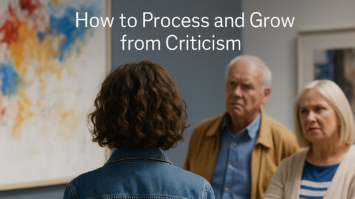
Should You Self-Insure Your Artwork Shipments?
Shipping art comes with risk. Even when you’ve packed everything perfectly, handed it over to a trusted carrier, and crossed your fingers, there’s still that lingering question: What if something…

Is That Gallery Worth It? How to Evaluate Representation Opportunities
It’s an exciting moment when a gallery expresses interest in your work—or when you spot a potential opportunity and consider reaching out. But not all gallery relationships are created equal….

How to Cross-Promote Effectively With Your Gallery Partners
When an artist lands gallery representation, it’s easy to think the next step is to hand everything over and step aside. But one of the most powerful ways to build…

How to Talk About Your Art Without Sounding Rehearsed
If you’ve ever caught yourself repeating the same line about your work for the tenth time at a show—and hearing it fall flat—you’re not alone. One of the most common…

Do Artists Still Use Press Releases? How to Write One That Works
In an era of social media, email newsletters, and online event platforms, you might be wondering: Do artists still need press releases? The short answer is yes—but not for the…

Should You Help a Collector Resell Your Artwork?
Every so often, I hear from artists who have been contacted by a former collector—or more often these days, by a collector’s family—asking if they’ll help resell a piece of…

Validation and Vulnerability: Why the Artist’s Opinion Still Comes First
In my previous post, I made the case that not every viewer is your viewer—and that’s okay. But that’s easier said than lived. Because the truth is, even when we…

When Viewers Don’t “Get” Your Art: How to Process and Grow from Criticism
There’s a particular sting that comes when someone shrugs at your work. Maybe they don’t mean to be dismissive, but they glance, tilt their head, and move on. Worse still…

When Life Interrupts: Keeping Your Art Practice Alive Through Setbacks
You had a plan. Maybe it was a show you were preparing for. A new collection in the works. A list of galleries to contact or a goal to paint…

Turning a Small Event Into a Big Win
Making the Most of Modest Shows, Light Traffic, and Off-the-Path Booths Not every art festival or studio tour draws huge crowds. You may be placed in a quiet corner, or…